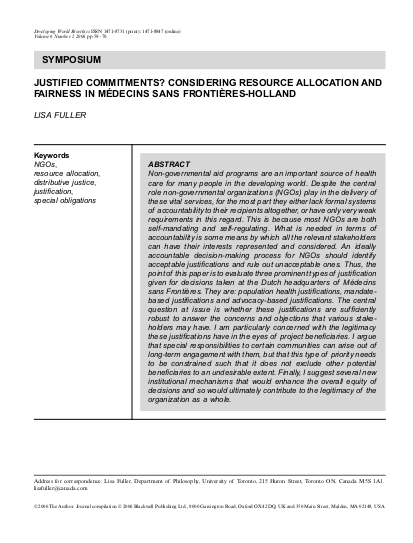
Non-governmental aid programs are an important source of health care for many people in the developing world. Despite the central role non-governmental organizations (NGOs) play in the delivery of these vital services, for the most part they either lack formal systems of accountability to their recipients altogether, or have only very weak requirements in this regard. This is because most NGOs are both self-mandating and self-regulating. What is needed in terms of accountability is some means by which all the relevant stakeholders can have their interests represented and considered. An ideally accountable decision-making process for NGOs should identify acceptable justifications and rule out unacceptable ones. Thus, the point of this paper is to evaluate three prominent types of justification given for decisions taken at the Dutch headquarters of Me´decins sans Frontie`res. They are: population health justifications, mandate- based justifications and advocacy-based justifications. The central question at issue is whether these justifications are sufficiently robust to answer the concerns and objections that various stake- holders may have. I am particularly concerned with the legitimacy these justifications have in the eyes of project beneficiaries. I argue that special responsibilities to certain communities can arise out of long-term engagement with them, but that this type of priority needs to be constrained such that it does not exclude other potential beneficiaries to an undesirable extent. Finally, I suggest several new institutional mechanisms that would enhance the overall equity of decisions and so would ultimately contribute to the legitimacy of the organization as a whole.